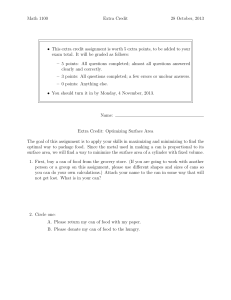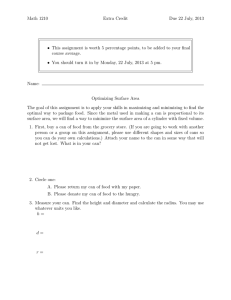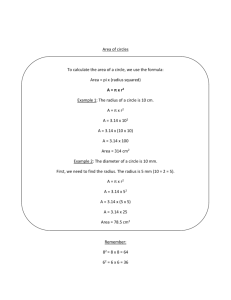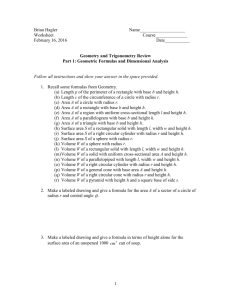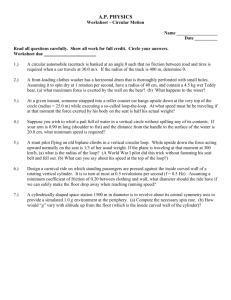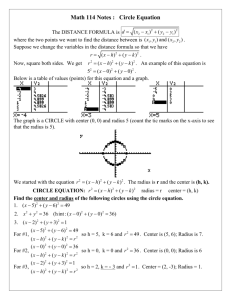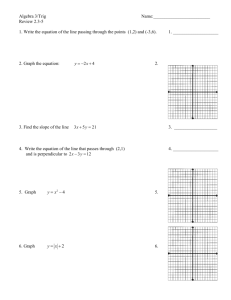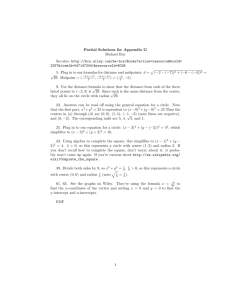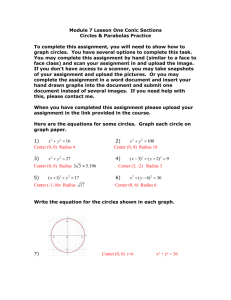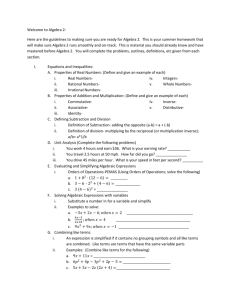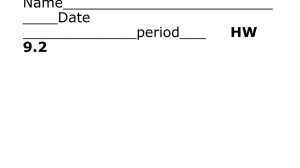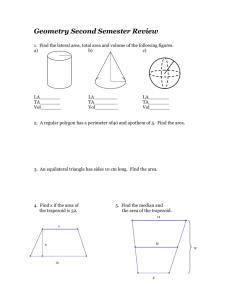COMMON MATH FORMULAS
advertisement
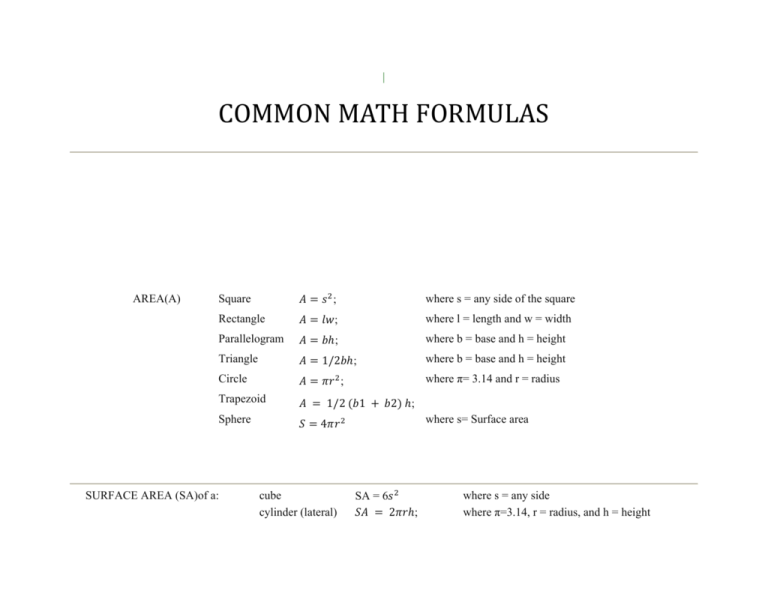
| COMMON MATH FORMULAS AREA(A) Square ; where s = any side of the square Rectangle ; where l = length and w = width Parallelogram ; where b = base and h = height Triangle 1/2 Circle SURFACE AREA (SA)of a: where π= 3.14 and r = radius ; Trapezoid Sphere where b = base and h = height ; 1/2 1 2 ; where s= Surface area 4 cube cylinder (lateral) SA = 6 2 ; where s = any side where π=3.14, r = radius, and h = height PERIMETER (P) of a Square 4 ; Rectangle 2 Triangle Any shape Circle (Circumference) VOLUME (V) of a where s = any side 2 ; where l = length and w = width where s = a side 1 2 3; P = the length of all sides added together where π= 3.14 and d = diameter ; Cube Rectangular Container where S = any side where l = length, w = width, and h = height ; ; 1/3 Square Pyramid Cylinder Cone Sphere ; ; 1/3 4 3 Right Circular Cylinder ; where b = base length, h = height, where π= 3.14, r = radius, and h = height where π= 3.14, r = radius, and h = height where r=radius, v = volume where r= radius, v=volume, h = height FORMULAS/EQUATIONS Distance between two points Slope of a line Quadratic Equation 2 1 2 2 2 1 where (x1,y1) and (x2,y2) are two points on a coordinate plane where (x1,y1) and (x2,y2) are two points on a coordinate plane 1 0 Where a and b are coefficients and c is constant Standard Equation of a circle Where r is the radius and (h, k) is the center Quadratic formula Where a and b are coefficients and c is constant Standard Equation of a circle √ 2 4 Where r is the radius and center at (h, k) , Point-Slope Equation of a line Where m is the slope and the point Slope-Intercept Equation of a line Where m is the slope and b is the y-intercept PYTHAGOREAN THEOREM where a and b are legs, and c is the hypotenuse, of a right triangle CENTRAL TENDENCY Mean (x1 + x2 + . . . . x?) / N Where the x's are the values for the desired mean, and N is the number of values involved Median (if odd number of values) arrange values in numeric order, then choose the value in the middle (if even number of values) arrange values in numeric order, then add the two middle values and divide by 2 Mode the value that appears most often Range subtract the lowest value from the highest value MISCELLANEOUS FORMULAS Simple Interest where I = interest, p = principal, r = interest rate, and t = time Distance where d = distance, r = rate, and t = time Total Cost (Number of Units) x (Price per Unit) OTHER ALGEBRAIC RULES & SPECIAL PRODUCT Product Rule Power Rule Quotient Rule Negative exponent Total Cost 1 (Number of Units) x (Price per Unit) where is the base where is the base where is the base are the exponents are the exponents are the exponents where d = distance, r = rate, and t = time
